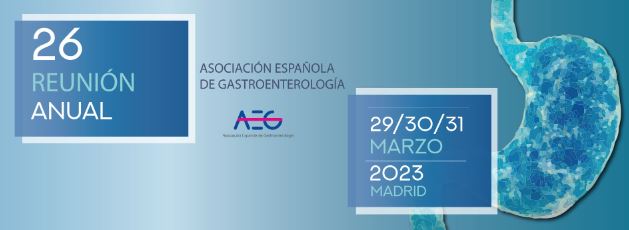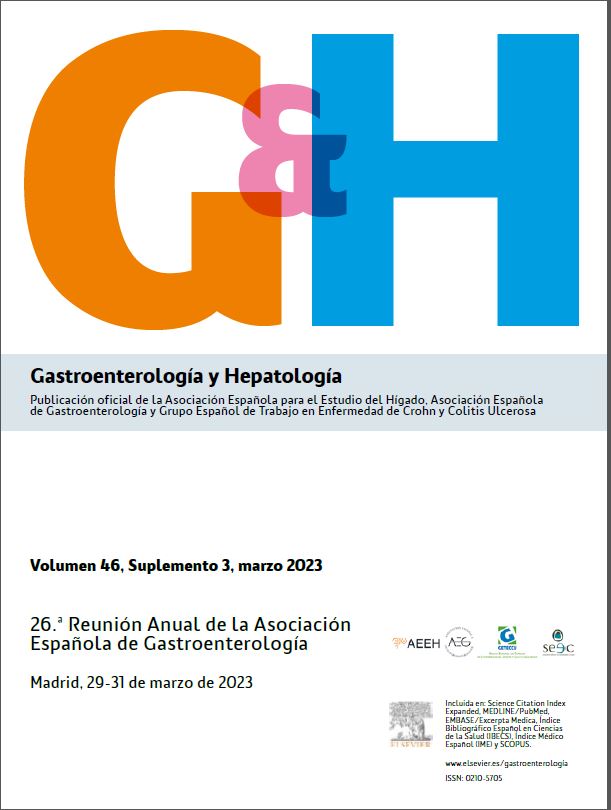159 - KLF5 UPREGULATION IS A COMMON EVENT IN CHOLANGIOCARCINOMA, ACTING AS AN ONCOGENE AND CONSTITUTING A BAD PROGNOSTIC FACTOR
1Department of Liver and Gastrointestinal Diseases, Biodonostia Health Research Institute-Donostia University Hospital, University of the Basque Country (UPV/EHU), San Sebastian. 2National Institute for the Study of Liver and Gastrointestinal Diseases (CIBERehd, "Instituto de Salud Carlos III"). 3IKERBASQUE, Basque Foundation for Science, Bilbao. 4Division of Hepatology, CIMA-University of Navarra, Pamplona. 5Biotech Research and Innovation Centre (BRIC), Department of Health and Medical Sciences, University of Copenhagen, Denmark. 6Institute of Pathology, University of Regensburg, Regensburg, Germany. 7Proteomics Platform, CIC bioGUNE, CIBERehd, ProteoRed-ISCIII, Bizkaia Science and Technology Park, Derio. 8Molecular Oncology group, Biodonostia Research Institute, San Sebastian. 9Radcliffe Department of Medicine, University of Oxford, UK. 10Department of Medicine, Faculty of Medicine and Nursing, University of the Basque Country UPV/EHU, Leioa. 11Department of Biochemistry and Genetics, School of Sciences, University of Navarra, Pamplona.
Introduction and objectives: Cholangiocarcinoma (CCA) comprises a heterogeneous group of malignant tumors with poor prognosis. Krüppel-like factors (KLF) are a family of transcription factors involved in large variety of biological processes, including organogenesis, differentiation and cellular homeostasis. Here, we investigated the role of KLF5 in cholangiocarcinogenesis and evaluated the therapeutic potential of its inhibition during CCA tumorigenesis.
Methods: KLF5 expression was determined in human CCA tissues [Copenhagen (n = 210), TCGA (n = 36), Job (n = 78), TIGER-LC (n = 90) and San Sebastian cohorts (n = 12)] and cell lines. KLF5-/- CCA cells were generated by CRISPR/Cas9. Proteomic analyses were carried out by mass spectrometry and the functional effects of KLF5 genetic ablation or chemical inhibition with ML264 were evaluated in vitro and in vivo.
Results: KLF5 expression was upregulated in human CCA tissues from 5 different patient cohorts compared to surrounding normal liver tissue. High KLF5 levels correlated with lymph node invasion and worse overall survival. In vitro, KLF5 protein and mRNA levels were found upregulated in human CCA cells compared to normal human cholangiocytes. Proteomic analysis of KLF5-/- CCA cells revealed that most of the altered pathways are related with the modulation of cell cycle, proliferation, survival and migration. In agreement, KLF5-/- CCA cells displayed decreased cell proliferation, colony formation and migration while promoting cell cycle arrest at G1/S and apoptosis in vitro, when compared with CCA control cells. Instead, no signs of tumor development were evident after subcutaneous or orthotopic injection in a xenograft animal model of CCA. Likewise, pharmacological inhibition of KLF5 with ML264 hampered CCA cells proliferation and migration in vitro and blocked tumor growth in vivo in distinct animal models. Lastly, both genetic and pharmacological inhibition of KLF5 sensitized CCA cells to chemotherapy-induced apoptosis in vitro, and the combination of the standard of care chemotherapy (gemcitabine + cisplatin) and ML264 completely halted CCA tumor growth in mice.
Conclusions: Increased KLF5 is a general event in CCA, contributing to cancer progression by promoting cell survival and proliferation, as well as, chemoresistance. KLF5 inhibition with ML264 may represent a potential therapeutic strategy for CCA.









